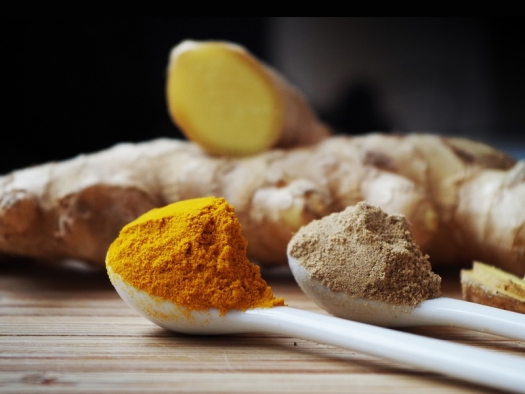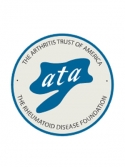TurmericAndGinger.jpg

Photo by Ajale / Pixabay
Causations for Rheumatoid Arthritis
Of nine interdependent causations for Rheumatoid Arthritis – Genetic Predisposition; Stress; Dietary Deficiencies; Sports Injuries and Surgery; Infectious Organisms (foci of infections); Allergies and Chemical Sensitivities, Pollution Metal Toxicities, Intake of Harmful Chemicals, etc.; Hormonal Imbalances and Metabolic Problems; and Weakened Immunological System – each overlaps, and intermingles with the others.
It's not appropriate to develop a treatment regimen that addresses but one of the nine without some consideration for the others, although that is often tried, sometimes with success.
While each arthritic victim should be treated as an individual, with specially designed treatment programs depending upon their special needs, there are, nonetheless, general principles that apply to everyone.
General Principles for Achieving Wellness in the Rheumatoid Diseases
1. Stress
Not only can controlling the stress in your life help prevent contracting arthritis but if you get the disease, controlling stress can help lessen the pain.
Stress puts pressure on your immune system because when adrenaline and cortisol are produced to cope with stress it exhausts portions of your immune system. A healthy immune system is critical for preventing the onset of arthritis and for fighting the symptoms of arthritis.
Be conscious of stress in your life and use the following guidelines to reduce stress.
- Develop a positive attitude about everything you do; associate with "positive attitude" people.
- Learn to relax.
- Learn proper breathing exercises.
- Cultivate a good sense of humor.
- Listen to relaxing music.
- Visit with friends and do things that you enjoy.
- Exercise, get outside in the sunlight, take really brisk walks.
- Permit yourself to yawn when required, and to stretch from time to time.
- Take enjoyable vacations, at least get away from hum drum routine.
- Always get proper rest.
- Learn about your inner spirit, pray according to your conscience and beliefs.
- Stay in control, don't just become a drug user, as happens to many patients.
2. Vitamins and Supplements
Vitamins and supplements classified as anti-oxidants can help reduce arthritic inflammation and strengthen the body's immune system to help it fight the symptoms of arthritis. Anti-oxidants neutralize harmful molecules called "free radicals" that damage cartilage joints and other tissues. They are also important where people consume the wrong "trans-fatty" oils, or are essential-fatty-acid deficient. Some of these vitamins and supplements which are classified as anti-oxidants are:
Vitamin A, beta carotene, vitamins B1, B5, B6, vitamin C, vitamin E, selenium, zinc, l-glutathione, l-cysteine, food antioxidants BHT, BHA.
Niacinamide has been shown to improve blood flow and assist with certain kinds of arthritis, such as osteoarthritis. Boron, which is often lacking in soils and our food, helps all forms of arthritis. Its supplementation – from the proper sources – often brings fast relief to arthritics.
Rheumatoid Arthritics need to take more calcium and magnesium, as both are often lacking in either the diet or ability to absorb and utilize. Calcium regulates all cellular metabolism and bioelectrical activity, and vitamin D3 (along with sunshine) assists in utilization of calcium.
Magnesium is crucial to the action cellular mechanisms. Americans receive less than one-half the necessary magnesium, and its lack is possibly the greatest cause for various heart problems and related deaths. Its lack causes cardiac arrhythmia, chronic back spasms, bladder spasms, asthma, migraine, irritable bowel, PMS, depression, fatigue, insomnia, sudden death, hypertensions, etc.
Supplementing with probiotics such as Lactobacillus acidophilus is important to produce proper vitamins as well as to displace the growth of harmful intestinal bacteria and yeasts.
3. Diet
Many arthritics have found relief by radically changing their diets to compensate for deficiencies of various vitamins and minerals. For example, many arthritics are deficient in free or ionic calcium and magnesium. Many have body fluids that are too acidic. Other arthritics demonstrate a lack of vitamin A, vitamin D3, and severe deficiencies of specific essential fatty acids, alpha-linolenic acid (Omega 3) and gamma-linolenic acid (Omega 6). These two fatty acids cannot be obtained from the diet, and many arthritics are unable to manufacture gamma-linolenic acid in significant amounts and also need to supplement with Evening Primrose Oil, Borage, or Black Currant Oil. Non-farmed cold-water fish can be helpful, too. These supplements have anti-inflammatory effects, and some of these essential fatty acids can also be found in flaxseed, walnut, soy and hemp oils, and also in beans, whole grains, and other foods. Avoiding the wrong kind of dietary and cooking oils can be equally important.
Here are some guidelines:
- Avoid all processed and canned foods.
- Avoid all white flour foods (crackers, white pasta, white rice, white bread).
- Avoid all fried foods.
- Avoid all hydrogenated or processed oils (margarine, peanut butter, potato chips).
- Avoid sugar and caffeine.
- Use fresh vegetables and fruits and fresh squeezed vegetable and fruit juices.
- Use "cold pressed" vegetable oils such as olive oil (salads and cooking).
- Take 2 teaspoons Norwegian Cod Liver oil each morning.
- Eat non-farmed cold-water fish like salmon, mackerel, herring, sardines and tuna.
- Eat only whole-grain pasta, flour, rice and breads.
- Drink the water used for boiling or steaming vegetables. Don't use too much water, and don't add salt when cooking.
As victims of Rheumatoid Diseases often also suffer from candidiasis – yeast/fungus infections – it is imperative that this infestation get under control, and this would require a different food regimen. Candidiasis can mimic many diseases, including arthritis, and also leads to food allergies.
4. Food Allergies and Chemical Sensitivities
It's been documented that food allergies are responsible for a vast number of mental, emotional and physical problems. Now there is evidence that food allergies may contribute to joint aches and swelling which is often misdiagnosed as arthritis. People who are prone to yeast infections may be particularly at risk for "arthritic food allergies."
Chemical sensitivities, which can result from thousands of industrial chemicals and pollutants, are often confused with food allergies. For example, about one out of three arthritics have a bad reaction to the so-called "nightshade plants" listed below:
- white potato
- eggplant
- tomato
- pepper
- tobacco
These individuals frequently have a sensitivity to the solanine chemicals present in these foods and the tobacco. Solanine sensitivity can also cause arthritic symptoms.
5. Herbs and Hormones
Effective herbal medicines often include Turmeric (Curcuma longa), Ginger (Zingiber officinale), bupleurum (Bupleuri falcatum) Licorice (Glycyrrhiza glabra), Ginseng (Panax ginseng), Scute (Scutellaria baicalensis), Feverfew (Tanacetum parthenium), Devil's Claw (Harpagophytum procumbens), the proanthocyanidins, blueberries, cherries, hawthorn berries and kelp for the thyroid. There are considerably more.
Herbs operate in many different ways. Some of them simply dampen the inflammation, swelling and pain, without the dangerous side-effects of prescription drugs. Some, acting together with other herbs, will restore the homeostasis, the systems balances of the body, so that the body can better utilize its food and energy.
6. Drugs and Physician Assistance
The Arthritis Trust of America/The Rheumatoid Disease Foundation recommends certain specific drugs that have shown an ability to halt the progress of Rheumatoid Diseases, including Rheumatoid Arthritis. These drugs must be taken properly, and must be administered by a licensed physician.
Hormone medications may also be important, such as thyroid, thymus, dehydroepiandrosterone (DHEA) and others. DHEA is a precursor to many important hormones. As we age, we produce less and less DHEA in direct proportion to our aging. Eventually a point is reached where the lack of sufficient DHEA acts as the trigger for many disease states.
A deficiency in thyroid means a lowered metabolism, which causes poor enzyme functioning (multiple enzyme deficiency syndrome), which leads to fatigue, inability to fight off diseases, and poor repair ability.
The thymus gland is responsible for producing certain "T" cells found in the immunological system so necessary in warding off invading organisms that cause disease.
Estrogen/progesterone is important for woman, and Testosterone is important for men. Use only natural hormone replacements, not synthetic or horse-derived hormones.
An imbalance of the hormonal system can and does lead to many diseases, including arthritis.
All hormone supplementation should be under a doctor's care.
by Perry A. Chapdelaine, Sr., Executive Director/Secretary, The Roger Wyburn-Mason and Jack M. Blount Foundation for the Eradication of Rheumatoid Disease.
The above principles were reviewed and approved by Jack M. Blount, M.D., Ronald Davis, M.D., Paul Jaconello, M.D., Warren Levin, M.D., Rex E. Newnham, D.O., N.D., Ph.D., Gus J. Prosch, Jr., M.D., John Parks Trowbridge, M.D.
The Rheumatoid Disease Foundation / The Arthritis Trust of America was dissolved in 2020 and all website content was transferred to the Foundation for Alternative and Integrative Medicine.


